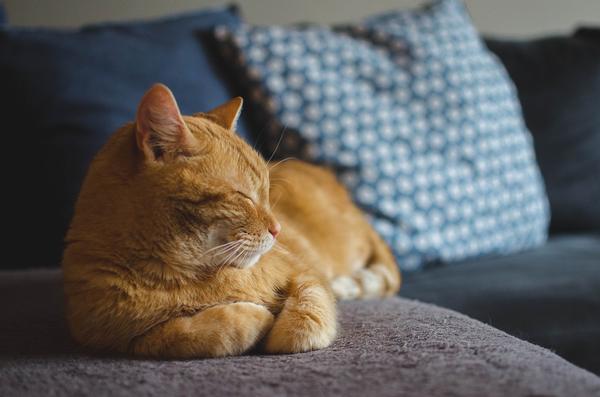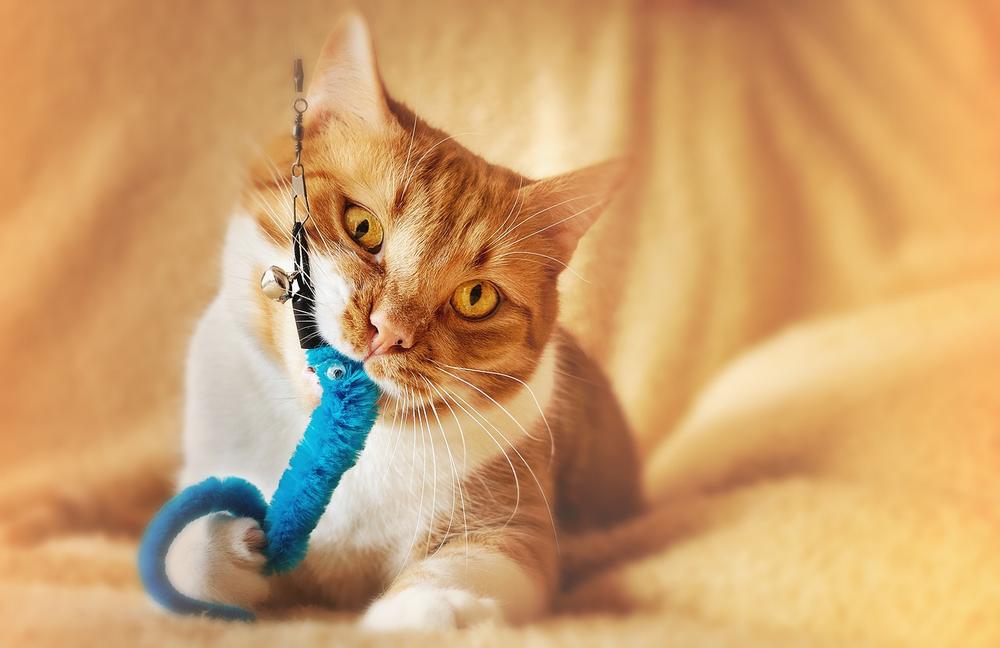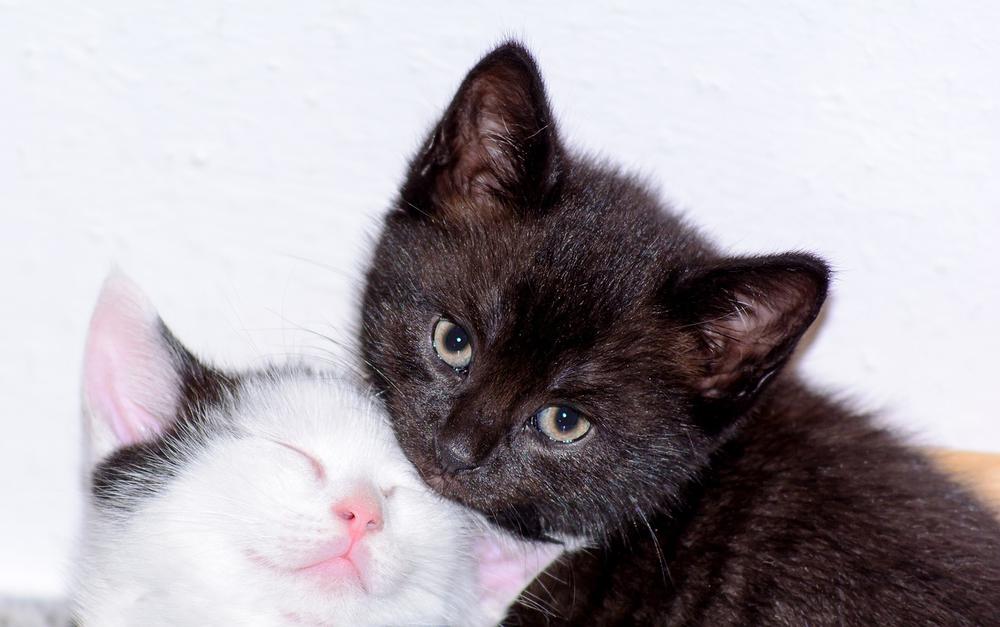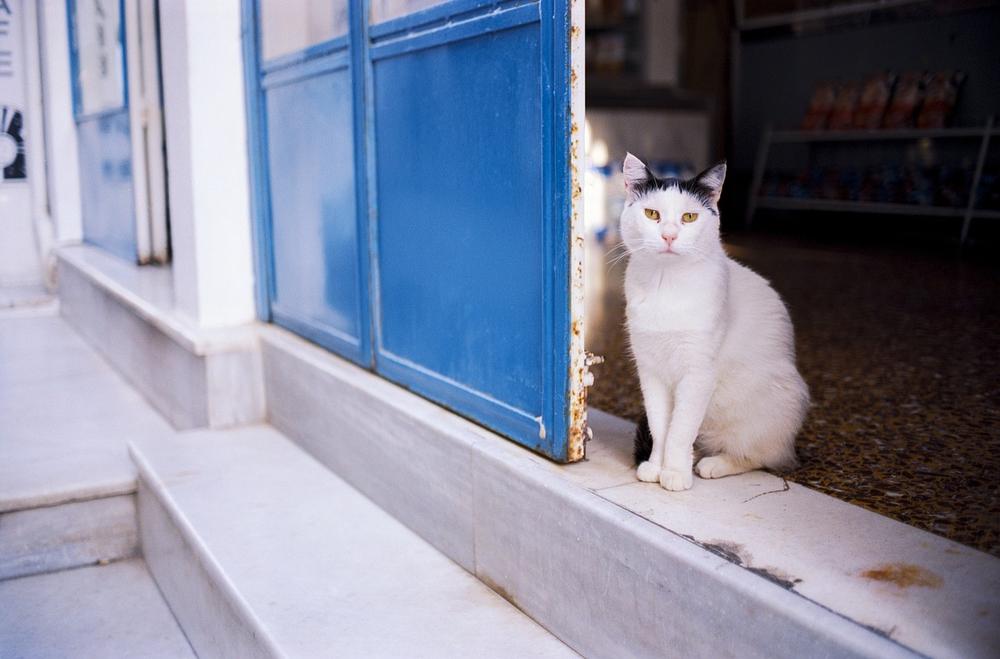Why Does Your Cat Purr Like CONSTANTLY? (No BS Answer)

Look, here's the deal:
Your cat won't stop purring, and it's driving you up the wall.
Sleepless nights, constant noise, and a never-ending need for attention - sounds like a recipe for disaster, right?
Well, buckle up, because I've got the solution you've been desperately searching for. 😺
Let's dive in!
Possible Reasons and Solutions for Cat's Constant Purring
To figure out why your cat is purring all the time and come up with solutions, here are some things to think about:
- Make sure your cat gets mental stimulation by playing with interactive toys.
- Consider closing your bedroom door at night so you're not disturbed by a purring cat.
- Remember that when cats purr, they're trying to communicate their need for attention and affection.
- Changes in environment, routine, diet, or how hydrated your cat is can make them purr constantly.
- Give your cat comfort, support, and a cozy spot to rest.
- Keep in mind that it's natural for cats to purr, so don't try to stop it completely.
- Try to figure out what's causing the constant purring so you can address any underlying issues.
- Cats purr because it makes them feel good, brings them positive emotions, and gives them physical satisfaction. 😺
- Purring helps cats deal with stress and discomfort by calming them down.
- The sound and vibrations of purring have a soothing effect on cats and can lessen their stress levels.
- Generally, if your cat is purring, it means they're content and happy in their surroundings.
Remember these tips as you navigate the world of cat purring behavior!
Main points I'll expand upon further down this article:
- Purring is a behavior cats use to express safety, happiness, and security.
- Kittens learn to purr while nursing and use it to form strong bonds.
- Cats may purr during play to improve hunting skills.
- Older cats may purr to seek self-soothing during stressful situations.
- Cats have different types of purrs, ranging from loud to soft.
- Cats use solicitation purring to get something from their caregiver.
- Kittens may constantly purr due to anxiety or a desire for their mother.
- Purring and biting in kittens can be playful or express fear/irritation.
- Cats enjoy petting on their head and chin, but not sensitive areas.
- Changes in purring habits may indicate health or living condition changes.
But why do cats constantly purr?

Let's dive deeper into the world of cat purring behavior to understand the different reasons behind this fascinating feline phenomenon!
Understanding Kittens' Constant Purring
Understanding kittens' constant purring can be a bit confusing at times.
After all, why do they purr so much?
Well, there are actually several reasons behind this adorable behavior.
- Excitement and high energy levels: Kittens are naturally filled with energy and enthusiasm, so it's not uncommon for them to constantly purr when they're feeling excited or playful.
- Expressing happiness and security: Purring is a way for kittens to show their contentment and sense of security. It's like their way of saying, "Hey, I'm happy!"
- Bonding with their mother: Kittens learn to purr while nursing from their mother. That purring helps create strong bonds between them and their mom, and they carry on this behavior into adulthood.
- Playtime and hunting skills: Sometimes kittens will purr during play as a way to improve their hunting skills. This may be accompanied by occasional biting as they practice their instincts.
- Self-soothing during stress: Older cats may purr when they're feeling anxious or stressed. It's a way for them to calm themselves down and seek comfort.
- Different types of purrs: Cats have varying types of purrs, ranging from loud to soft. Each purr has its own meaning and purpose, allowing them to communicate different emotions or desires.
- Solicitation purr: The solicitation purr is a specific type of purring used by cats to get something from their caregiver, such as food. It's their way of charming us into giving them what they want.
- Kittens and mother longing: Constant purring in kittens can sometimes indicate anxiety or a longing for their mother. It's their way of seeking reassurance and comfort.
- Purring and biting: In kittens, purring and biting can often go hand in hand. Sometimes it's just playful behavior, while other times it may express fear or irritation.
- Petting preferences: While most cats enjoy head and chin petting, they tend to dislike it on more sensitive areas like the belly or tail. It's important to be aware of their preferences and respect their boundaries.
So there you have it.

Cats purr for a variety of reasons, each with its own purpose and meaning.
Understanding these different factors can help us better connect with our feline friends and provide them with the care and attention they need.
But have you ever wondered what exactly happens inside a cat's throat when they purr?
How does this seemingly simple act of expressing happiness or seeking comfort actually work?
Well, let's dive deeper into the fascinating mechanics and benefits of purring!
Why Cats Purr and How It Works
Cats purr to show gratitude, satisfaction, and contentment.
They do this not just when they're grateful for food, but also to display comfort and affection towards their owners.
Purring can be intentional or unintentional, coming from different parts of the cat's throat like the diaphragm, larynx, and hyoid bone.

The range of frequencies produced by purring has therapeutic effects, generating endorphins and acting as an analgesic.
It helps with relaxation, grooming, and bonding between cats and humans.
Purring is made possible by the rapid movement of muscles in the larynx and diaphragm.
Cats can even purr while sleeping, though they remain aware of their surroundings.
On top of that, purring has the potential to lower stress hormones in both cats and humans.
Concerns About Cat's Constant Purring
Excessive purring may indicate your cat is in discomfort or pain
You see, cats purr for different reasons.
They purr when they're happy, but did you know that excessive purring can mean something else?
If your cat keeps purring constantly, it could be a sign that they are uncomfortable or in pain.
If you notice changes in their purring behavior, you need to pay close attention. Look out for any signs of distress or unusual behavior.
And if you're worried, don't hesitate to take your cat to the vet.
The vet will be able to determine if there's an underlying health issue that needs attention.
Purring is both a way for cats to communicate and cope with stress
Now let's talk about purring:
It's not just about being happy and relaxed.
Cats also use purring as a way to communicate and handle stressful situations.
So if your cat is stressed or scared, they might purr more often.
But here's the thing...
You might feel the urge to always respond to their purrs.
However, sometimes it's best to give them space.
If your cat is excessively purring because they're anxious or scared, constantly responding to them might unintentionally reinforce their stressed state.
Excessive purring can indicate an underlying health problem
Now let's get serious. Excessive purring, along with other symptoms like withdrawal, reduced appetite, or a hunched appearance, should raise concerns.
These could be warning signs of a health issue.
If your cat shows signs of pain, tiredness, limping, or any other abnormal behavior, you need to take them to the veterinarian for a thorough examination. There could be medical conditions like respiratory or dental problems causing the excessive purring. Your furry friend deserves proper treatment, so seek professional help without hesitation.
Purring is how cats express their needs and emotions. Each cat has its own unique way of purring.
So keep an eye out for any changes that might indicate discomfort or illness.
Your cat's well-being is the most important thing!
And did you know that there's even more to the mystery of purring in cats? If you're curious to learn whether purring is involuntary or voluntary in cats, I invite you to check out my article, Is Purring Involuntary in Cats.
Dive deeper into this fascinating topic and satisfy your appetite for knowledge.
It's an informative guide that will shed light on the intricacies of our feline friends' purring behavior.
And that wraps up today's article.
If you wish to read more of my useful articles, I recommend you check out some of these: How to Make a Cat Purr, Why Is My Cat Obsessed With My Face, Why Is My Cat Hiding in the Closet, Why Do Cats Lick Themselves After You Pet Them, and Why Does My Cat Sit in the Bathtub
Talk soon,
-Sarah Davis